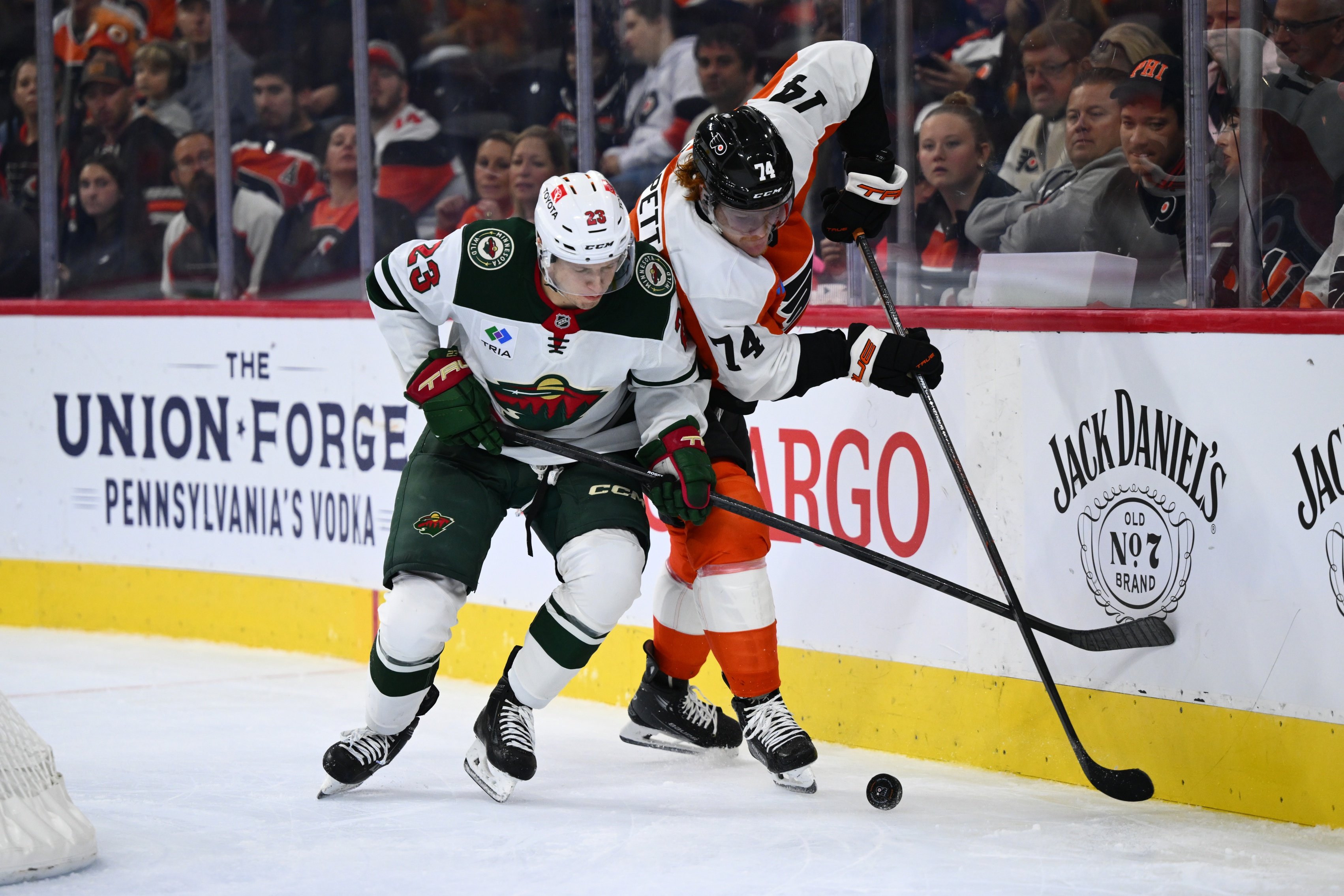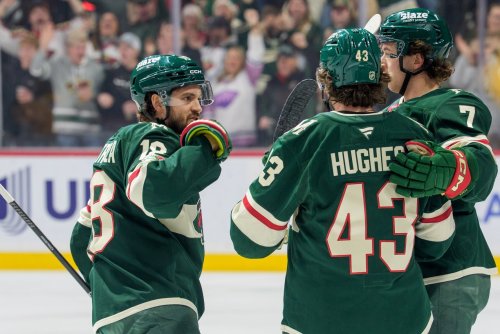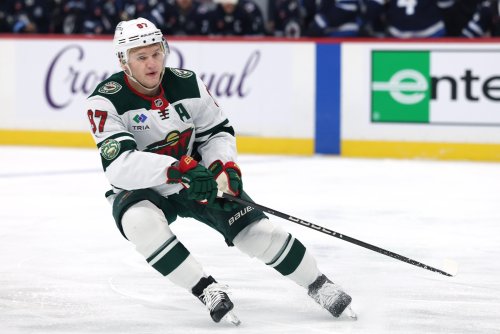
As a trader, Bill Guerin is all about fair value.
While other general managers might seek to fleece their brethren, Guerin believes conducting business that way is bad for a team in the long term. Back when he first got the gig, the Minnesota Wild GM said, "One of the great lessons I learned from [longtime GM] Jim [Rutherford] was... ‘Billy, never try to win a trade. Don’t try to screw the other guy over. Make a fair trade and you’ll get more deals done.’ That stuck with me."
Now in 2025, the pressure is on for Guerin to fuel his team's rise to being a Cup contender. Most believe his primary asset is center Marco Rossi. Typically, Rossi would be an untouchable player -- a 23-year-old center coming off a 20-goal, 60-point season. Only 41 centers in the last 20 years have done that, and just three were traded before turning 24 after putting up those numbers: Columbus Blue Jackets malcontents Ryan Johansen and Pierre-Luc Dubois, and Dylan Cozens, who had struggled for two consecutive seasons.
One wouldn't say any of those instances saw the team giving up the center "winning" the trade, but they got fair value. Johansen brought Columbus a top young defenseman in Seth Jones, a former fourth-overall pick.
The Jackets also swapped Dubois for Patrik Laine, a No. 2 overall pick with a 40-goal season on his resume. The Buffalo Sabres probably got the worst deal for a young, productive center. Still, they got Josh Norris, who averages 31 goals per 82 games when healthy.
So, what kind of goodies should the Wild expect for Rossi? Don't get your hopes up. The rumor machine has heated up, and it's believed the Wild are asking for what would look like a lowball offer, had it come the other way... and are still getting rejected.
To recap Anthony SanFilippo's tweet: Guerin is asking for either winger Tyson Foerster or one (not both, one) of the Philadelphia Flyers' late first-round picks, situated at 22nd overall and somewhere between 29th and 32nd overall. Philadelphia is, for now at least, saying no.
It's always tricky to deal with negotiations through the media, but let's take the report -- backed up by Daily Faceoff's Anthony Di Marco -- at face value.
That's incredibly concerning. It not only shows that Guerin is willing to offload a young player at a valuable position for somewhere between 60 and 75 cents on the dollar (which would be bad enough!), but that teams don't feel they need to meet even these meager demands.
And why would they? The Wild has spent over a year putting a FOR SALE sign on their player. The Flyers have reportedly known about their interest in offloading Rossi since the Cutter Gauthier trade.
Guerin and John Hynes have only done more to show their lack of confidence in Rossi, reportedly lowballing him with a five-year, $25 million offer, and burying him on the fourth line in the playoffs. It also didn't help that the GM went on the radio before the playoffs and, by omission, implied his center had "soft skill."
That has sent a clear signal to the rest of the league: We don't think we can win with this guy, and he's not a part of our core.
Whether Minnesota is right or wrong with this assessment is beside the point. If the Wild are not valuing Rossi like a top asset, why on earth would anyone expect to pay for him as a top asset?
There's a reason why the Flyers aren't parting with Foerster or a late-first-round pick, and it's not because they're more valuable than Rossi. Foerster's a solid winger, offering size, goal-scoring, and high-end defense. In Minnesota, he'd be this generation's Nino Niederreiter. Still, that can't compare to the value a No. 2 center like Rossi brings to the table. As for the 22nd pick in a "mid" draft class? Please. Philly would win a one-for-one swap by giving up any of those assets.
No, the reason they're not taking those deals is because they don't have to. The Flyers can bet that the Wild burned their bridges with Rossi, and given that Rossi just spent the playoffs trapped on the fourth line, the center has no incentive to accept a bridge deal. A team like Philly has the option to either force Minnesota's hand with an offer sheet -- where they wouldn't surrender picks until 2026 -- or simply wait out Guerin and hope the price drops to, say, two second-rounders.
Or, at any time, Philly could say, Sure, Rossi for 31st overall, here you go. If such a favorable price is in your back pocket on May 29, why make it now, when the draft isn't for another month?
However, from a Wild perspective, if Guerin accepts this price, how can the team hope to come away with a "fair" trade for Rossi? If someone like Foerster -- a strong but unspectacular middle-six option -- is off the table in a Rossi trade, then any big swing for top-line winger JJ Peterka would seem impossible. From Buffalo's point of view, why give up a player you don't want to surrender for a player the Wild don't want to keep?
Minnesota was always highly likely to lose a Rossi trade. Young, top-six centers are difficult to find, which the Wild should understand better than anyone. Those kinds of players are some of the most valuable assets in the game. As such, getting "fair value" back for one under any circumstances is challenging.
But the Wild might have had a chance had they not made a series of blunders that failed to help them win in the playoffs. Because of that, they've severely driven down the value of what should have been their best trade chip. If these indications of Rossi's value prove close to true, the Wild aren't only going to fail to make a "fair" trade. They're about to give us a disasterclass in asset management.
Think you could write a story like this? Hockey Wilderness wants you to develop your voice, find an audience, and we'll pay you to do it. Just fill out this form.
-
 3
3







Recommended Comments
Join the conversation
You can post now and register later. If you have an account, sign in now to post with your account.
Note: Your post will require moderator approval before it will be visible.